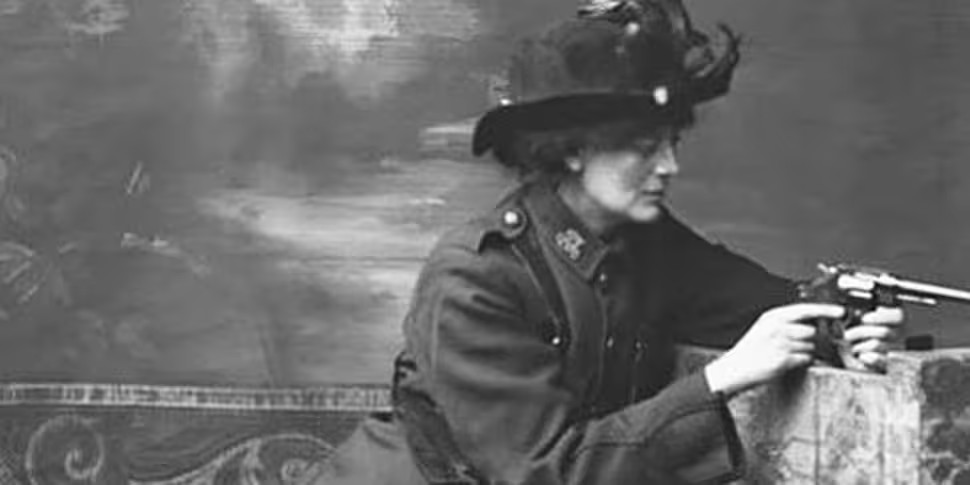Updated: 14.40
An event has been held in Dublin to mark 150 years since the birth of Constance Markievicz.
2018 is also the centenary of her historic election as the first Irish woman elected to the British parliament.
To celebrate, the Countess Markievicz School organised a commemoration at her graveside in Glasnevin Cemetery.
Among speakers were Patricia King of the Irish Congress of Trade Unions (ICTU), Senator Ivana Bacik and Sinn Féin president-elect Mary Lou McDonald.
Remembering Markievicz - Republican, Feminist, Hero. A most unmanageable revolutionary @CountessMarkiev @KZapponeTD @ivanabacik pic.twitter.com/dQnVKxb50k
— Mary Lou McDonald (@MaryLouMcDonald) February 4, 2018
They spoke about issues that Countess Markievicz supported and was most passionate about: labour rights, nationalism and suffrage.
Countess Markievicz was born in London in 1868. Her father was philanthropist, Henry Gore-Booth, who was married to Georgina May Hill.
Constance was educated at the family estate in Lissadell, Co Sligo.
Inspired by William Butler Yeats, she became interested in Irish nationalism and social issues at a time women were not allowed to vote in elections or to become members of parliament.

Constance Markievicz | Image: The Lissadell Estate
At 25, she went to Paris to continue her studies and met and married Casimir Dunin-Markievicz. Their only child, Maeve, was born in Lissadell in 1901.
Markievicz established and operated a soup kitchen at Liberty Hall in Dublin during the 1913 Lockout.
She collected and delivered bags of turf, which she brought into the city in her car from the Dublin mountains.
She was regularly seen hauling heavy bags of fuel up flights of stairs in back-street tenement house.

Image: The Lissadell Estate
During the 1916 Rising, Markievicz was appointed second-in-command at St Stephen's Green.
While she was sentenced to death for her part, she had this commuted on account of her gender and was sent to Ailsbury Gaol in England.
She was the first woman to be elected to British parliament in Westminster - where she refused to take her seat - and the first to be elected to and serve in Dáil Éireann.
Image: Facebook/Countess Markievicz School
In June 1927 she fell ill and she was admitted to a public ward in Sir Patrick Dun's Hospital in Dublin.
She had peritonitis and although she had surgery, she died at 1:25am on the morning of July 15th 1927.










